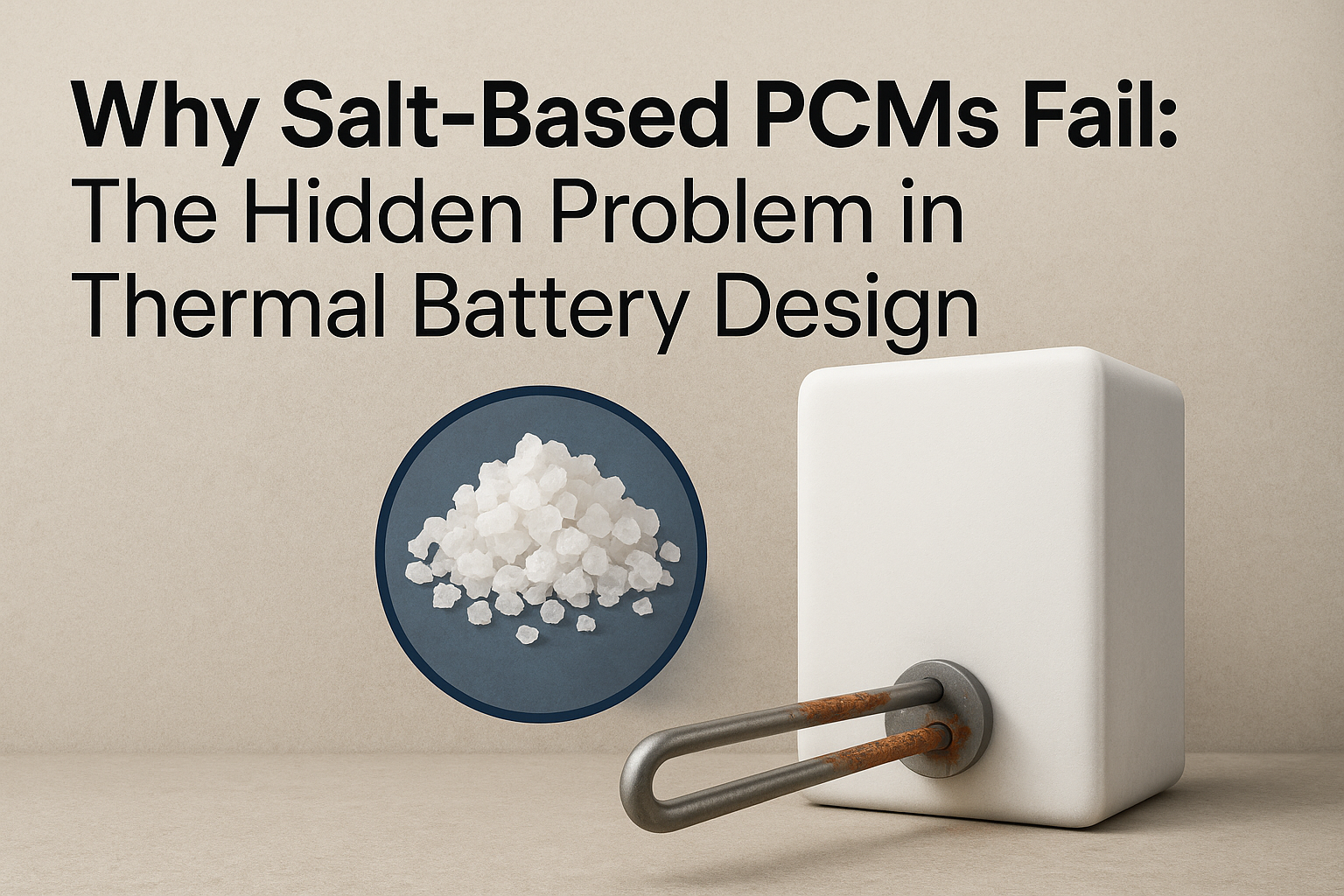

Thermal energy storage is transforming how we heat and cool our homes, businesses, and infrastructure—but not all thermal batteries are built the same. A growing number of systems on the market use salt-based phase change materials (PCMs) in their core technology. While these materials may seem innovative on paper, the real-world results paint a different picture.
In fact, several high-profile thermal storage brands using salt-based PCMs have faced serious reliability issues, widespread warranty claims, and even legal challenges. The issue isn’t the concept of thermal batteries—it’s the chemistry behind them.
At SolThera, we took a different path—one that eliminates the core failure points built into salt-based systems. Here's why that matters.
Salt hydrates are among the most commonly used materials in early-phase thermal batteries. These PCMs rely on melting and solidifying salts to store and release energy—but they come with significant, often overlooked flaws:
Salt-based PCMs are corrosive by nature. Over time, they break down internal components like electric heating elements, gaskets, and thermal sensors. In many cases, electric heaters fail in as little as 3 to 5 years, requiring full system replacement or costly repairs. These aren't theoretical problems—they’ve led to extensive warranty claims and disputes across the industry.
Salt hydrates suffer from thermal fatigue. After repeated heating and cooling cycles, they often experience phase separation, supercooling, or crystallization issues that drastically reduce their ability to store and release heat. This means that what started as a “high-efficiency” system slowly loses capacity year after year.
Most salt-based PCM systems are not NSF-61 certified, which disqualifies them from use in potable water systems. This becomes a major roadblock for residential, commercial, and municipal applications where health and safety standards are strictly enforced.
Many of these systems lack integrated diagnostics, thermal control, or real-time feedback tools. Without these capabilities, system operators are flying blind—unable to track performance, efficiency, or early signs of failure.
SolThera was engineered to overcome every one of these limitations by designing a thermal battery from the ground up using advanced materials and modern system controls.
Our proprietary PCM is inert and non-corrosive, extending system life far beyond conventional salt-based designs. There’s no chemical attack on internal elements, which means longer heater life, zero phase separation, and predictable performance for decades.
SolThera is fully NSF-61 certified, making it safe for use in systems connected to domestic or drinking water—crucial for real-world residential and commercial adoption.
Each SolThera unit comes with onboard diagnostics, thermal control, and remote monitoring, allowing for smart integration with existing HVAC, solar, and building management systems. You’ll always know how your battery is performing and when (or if) it needs service.
We designed SolThera to be the last thermal battery you’ll need for a long time. With a 10-year+ warranty and performance that doesn’t degrade with use, you get peace of mind and superior ROI.
The failures we’re seeing in the market today aren’t about thermal batteries—they’re about the materials inside them. Salt-based PCMs are a shortcut that comes with long-term costs: corrosion, breakdown, inefficiency, and customer frustration.
SolThera isn’t just another thermal battery. It’s a smarter system, built on stable chemistry, modern control systems, and real-world performance data.
Because when it comes to storing heat for the next decade, what’s inside matters.